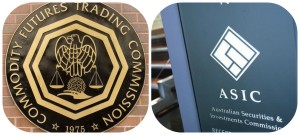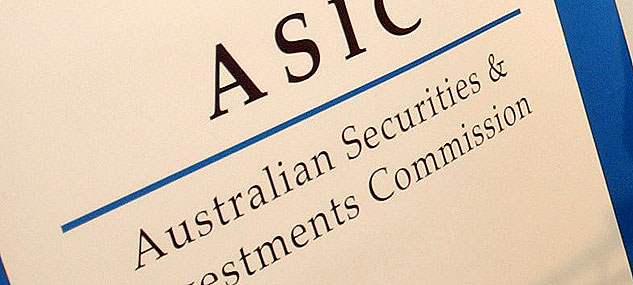
Australia’s official financial markets regulator, the Australian Securities and Investments Commission (ASIC) and a key U.S market regulator, the U.S. Commodity Futures Trading Commission (CFTC), have signed a Memorandum of Understanding (MOU) ) regarding cooperation and the Exchange of information in the supervision and oversight of regulated entities that operate on a cross-border basis in the United States and in Australia.
The MOU is not the first of its kind to be signed by either agency. ASIC, in tandem with the RBA, signed a similar MOU with the CFTC in June of this year, synchronising how the agencies handle cross-border “clearing organisations” rather than “certain regulated entities” which is what the latest MOU specifically targets.
The MOU is likely a move to improve awareness and understanding of various financial operations that overlap both countries. Both agencies will no doubt revel in having a way of streamlining regulatory operations that in modern financial markets must span borders as easily as multinational corporations can.

The agreement was formally signed (and takes effect) on September 29th by Timothy Massad, Chairman of the CFTC (right) and Greg Medcraft, ASIC Chairman (left)
Enforcement
A key element of the memorandum and one that’s likely to rouse a litany of questions is a provision for cross-border checks by foreign agencies of domestic Australian firms/individuals and vice versa.
According to the MOU, “In fulfilling its supervision and oversight responsibilities pursuant to, and to ensure compliance with, its Laws and Regulations, an Authority may need to conduct On-Site Visits to a Cross-Border Covered Entity physically located in the jurisdiction of the other Authority."
The MOU thus allows both ASIC and the CFTC to conduct physical investigation and premises searches on each other's territory. To what extent this type of "understanding" fits into both current U.S and Australian legislation, and more poignantly, how such an understanding impacts the Constitutional rights of both U.S and Australian citizens, is as yet unclear.
Despite promises from ASIC and the CFTC that the purpose of the signed MOU is not specifically for ‘enforcement purposes’, both agencies reserve the right to use any shared information in order to ‘enforce’ or prosecute particular firms or individuals, should they wish to do so. The MOU states: “The Authorities recognize that, while this MOU is not intended to enable the Authorities to gather information for enforcement purposes, subsequently the Authorities may want to use the non-public information provided pursuant to this MOU for enforcement purposes."
In an increasingly digital and globalised world of multinational financial threats, regulatory agencies are becoming innovatively multinational in maintaining vigilance of cross-border activity.












